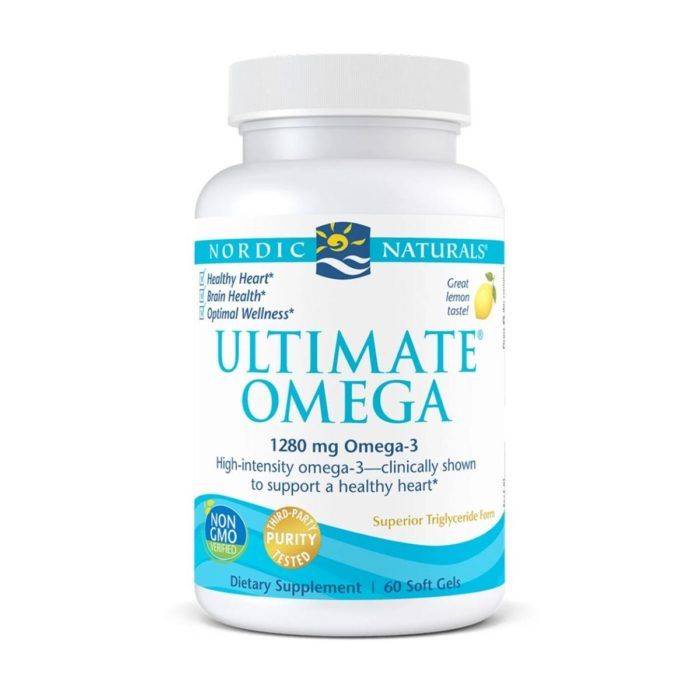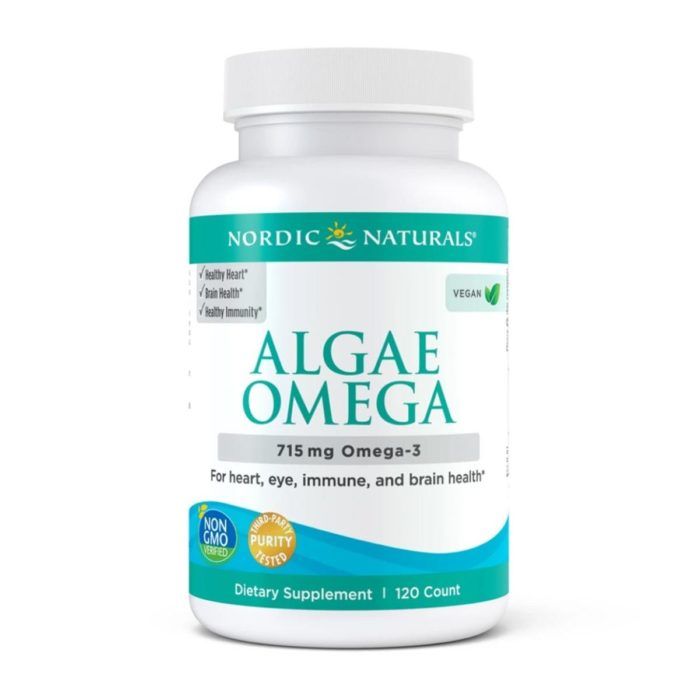Omega-3 Supplements Support a Healthy Heart
You probably already know the basics of heart health: eat a balanced diet, exercise, maintain a healthy weight, and avoid smoking and overindulging in alcohol. But did you know that adding omega-3 fatty acids to an already healthy diet may help support your cardiovascular health even more? This February, celebrate American Heart Month by focusing on your family’s cardiovascular health with some of the most well-researched nutrients out there.
What Are Omega-3 Fatty Acids?
Omega-3 fatty acids, often referred to simply as “omega-3s,” are polyunsaturated fatty acids that offer a range of powerful health benefits. There are three main types of omega-3s: alpha-linolenic acid (ALA), eicosapentaenoic acid (EPA) and docosahexaenoic acid (DHA). Due to the physiology of converting ALA to more usable forms, only EPA and DHA can raise the body’s omega-3 levels to those that benefit the heart. These two omega-3s are primarily found in marine sources, like cold-water fish.
Omega-3s provide energy in the form of calories and are a vital component of the membranes that surround the cells of the body.* Omega-3s, specifically DHA, are important for pregnant and breastfeeding women since their babies rely on them for fetal and infant development.* And a high intake may benefit both the immune and endocrine systems.*
Omega-3s and Heart Health
In addition to the benefits above, omega-3s serve multiple functions in the heart and blood vessels that make up the cardiovascular system. In fact, when it comes to heart health, there’s more research on omega-3s than any other supplemental nutrient. Because of this link between omega-3s and cardiovascular health, the American Heart Association recommends eating two 3.5-ounce servings of fish, particularly fatty fish, per week, which is roughly 500 mg per day of omega-3 EPA and DHA.
Given the prevalence of heart disease in the U.S., it’s important to note that supportive but not conclusive research shows that consumption of EPA and DHA omega-3 fatty acids may reduce the risk of coronary heart disease.* The National Institutes of Health note that both EPA and DHA can benefit triglyceride levels, a key factor in heart health.*
Triglycerides are a type of fat found in the blood, which can impact the function of the arteries and, thus, the heart’s ability to carry oxygen to the rest of the body via the blood. In certain cases, the American Heart Association recommends 2-4 grams of supplemental EPA+DHA daily as part of a comprehensive strategy for managing triglyceride levels.
Where to Get Omega-3s
Your body cannot produce omega-3s on its own, so you have to get them from your diet or supplements. Although most people in the U.S. get adequate ALA from their diets, many lack in sufficient amounts of EPA and DHA—especially people who rarely or never eat fish. Supplementing with omega-3s provides many of the cardiovascular benefits of eating fish with the reliability of a fixed daily serving.
Nordic Naturals Ultimate Omega

Consider taking an omega-3 supplement to make sure you’re getting enough EPA and DHA on a regular basis. One of our favorites? Nordic Naturals Ultimate Omega. Made from 100% wild-caught sardines and anchovies, these soft gels deliver 1280 mg of omega-3s per serving, primarily EPA and DHA. And the addition of natural lemon flavor means no lingering fish taste like you may have experienced with other fish oil supplements.
Nordic Naturals Algae Omega

Vegetarians and vegans are at especially high risk for inadequate intake of omega-3 EPA and DHA. For animal-free omega-3s, Nordic Naturals offers Algae Omega, which is made from sustainably sourced marine microalgae and delivers 715 mg of EPA- and DHA-rich omega-3s per serving.

To see this blog post and others, visit: www.pharmaca.com/projectwellness











